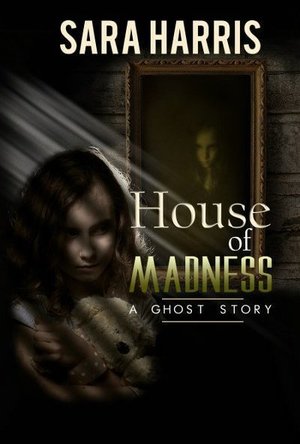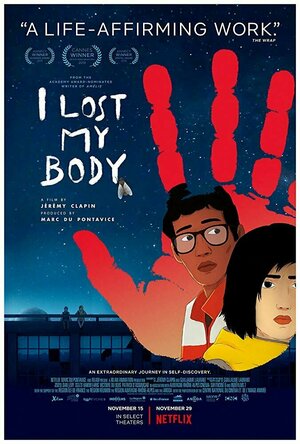Search
Search results
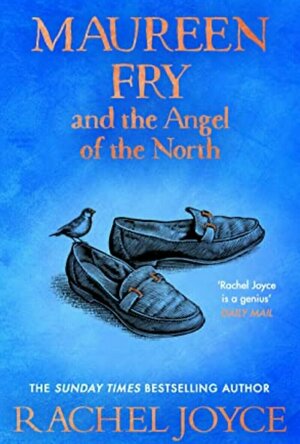
Maureen Fry and the Angel of the North
Book
Ten years ago, Harold Fry set off on his epic journey on foot to save a friend. But the story...
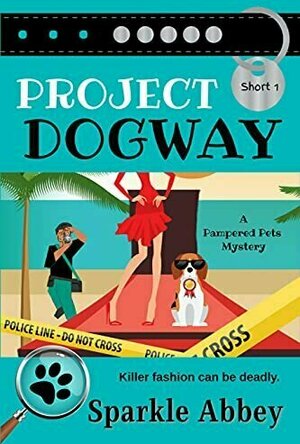
Project Dogway
Book
**This is a SHORT 10K word story** Canines are on the “catwalk” at this Laguna Beach dog...

Her Guardian Hero (Hot as Sin #2)
Book
He'll save her breath by day... and steal it by night. CARLOS The moment she walks into my...
Contemporary MF Romance Short Story Instalove
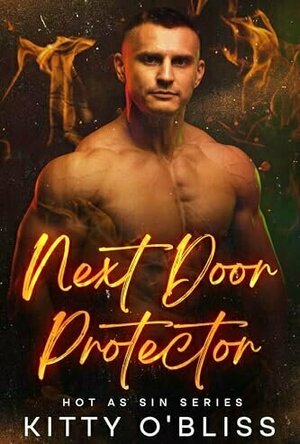
Next Door Protector (Hot as Sin #3)
Book
When danger lurks, his possessive instincts ignite... ALEXANDRA For three years, I've been...
Instalove Contemporary MF Romance Short Story
Heather Cranmer (2721 KP) rated House of Madness in Books
Mar 1, 2019
Good Pacing (1 more)
Interesting Characters
An Okay Ghost Story
I love love love paranormal thrillers! Ghost stories are my favorite, so when House of Madness by Sara Harris was up for review, I jumped at the chance. However, House of Madness was just an okay story. It wasn't brilliant, but it wasn't bad either.
The plot for House of Madness has been done before, but it was interesting to see how Sara Harris changed it up a bit. Adelaide (Addie), her husband Tim, and their daughter, Michaela, who's on the Autistic spectrum move to a great big house out in West Texas. Addie is an aspiring writer and had suffered a miscarriage previously. This new house, that they bought on the cheap, is their chance for a fresh start. However, it isn't long until weird things start happening and Michaela seems to have made a ghostly friend. The house previously belonged to a couple of doctors, and it also comes with a horrific past. There were times the plot seemed a bit far-fetched, but for the most part, I found the story to be enjoyable and entertaining. There were no cliff hangers in House of Madness, although I was left with one or two questions about the ending which I won't go into because to do so would mean spoilers. There were a couple of plot twists. I was able to easily predict one.
I felt some of the prose was a bit wacky sounding. One sentence in the book that sounded a bit strange was "His voice trailed off and mixed with a hot swirl of West Texas air." Maybe it's just me, but it didn't sound right. Another weird sounding sentence I found was "The closet door fell open with a creak." I imagined the door actually falling. Surely, it would have been better to write "The closet door opened with a creak"? Maybe I'm just being too pedantic. There were times when I felt like I was reading a young adult novel rather than a book aimed at adults. Saying all of that, I still did find the book to be a decent read.
I enjoyed the characters in House of Madness. They all felt realistic. Michaela and Addie seemed to be the main characters, and I enjoyed reading about them. I loved how sweet Michaela came across, and I loved how brave Addie could be. I enjoyed the little ghost girl named Lisette. I was always wondering if she'd turn out to double cross Michaela though. The ghost of Ritchie was definitely an interesting character. He was another one that made me question whether or not he would turn out bad or good. I always trusted Rochelle for some reason. The doctors, Marjorie and Roland Darkland, were also well written although they must have been very fit for an older couple considering they were probably supposed to be in their early 80s at the very least. (For the record, I'm assuming that House of Madness takes place in modern day. It's never actually mentioned what year it is.)
House of Madness is a short read, and the pacing made it feel even shorter. I thought that Sara Harris did an excellent job with the pacing. I found myself not wanting to stop reading at all. I had to know what happened next concerning the ghosts as well as the living characters.
Trigger warnings for House of Madness include violence, murder, attempted murder, mental illnesses, and talk of a miscarriage.
Overall, House of Madness was an alright read. Yes, the writing was a little shaky at times, but it's still worth reading for those who enjoy ghost stories. The characters were great, and the pacing was fantastic. I would recommend House of Madness by Sara Harris to those aged 15+ who like a short ghost story.
--
(A special thank you to Silver Dagger Book Tours for providing me with an eBook of House of Madness by Sara Harris in exchange for an honest and unbiased review.)
The plot for House of Madness has been done before, but it was interesting to see how Sara Harris changed it up a bit. Adelaide (Addie), her husband Tim, and their daughter, Michaela, who's on the Autistic spectrum move to a great big house out in West Texas. Addie is an aspiring writer and had suffered a miscarriage previously. This new house, that they bought on the cheap, is their chance for a fresh start. However, it isn't long until weird things start happening and Michaela seems to have made a ghostly friend. The house previously belonged to a couple of doctors, and it also comes with a horrific past. There were times the plot seemed a bit far-fetched, but for the most part, I found the story to be enjoyable and entertaining. There were no cliff hangers in House of Madness, although I was left with one or two questions about the ending which I won't go into because to do so would mean spoilers. There were a couple of plot twists. I was able to easily predict one.
I felt some of the prose was a bit wacky sounding. One sentence in the book that sounded a bit strange was "His voice trailed off and mixed with a hot swirl of West Texas air." Maybe it's just me, but it didn't sound right. Another weird sounding sentence I found was "The closet door fell open with a creak." I imagined the door actually falling. Surely, it would have been better to write "The closet door opened with a creak"? Maybe I'm just being too pedantic. There were times when I felt like I was reading a young adult novel rather than a book aimed at adults. Saying all of that, I still did find the book to be a decent read.
I enjoyed the characters in House of Madness. They all felt realistic. Michaela and Addie seemed to be the main characters, and I enjoyed reading about them. I loved how sweet Michaela came across, and I loved how brave Addie could be. I enjoyed the little ghost girl named Lisette. I was always wondering if she'd turn out to double cross Michaela though. The ghost of Ritchie was definitely an interesting character. He was another one that made me question whether or not he would turn out bad or good. I always trusted Rochelle for some reason. The doctors, Marjorie and Roland Darkland, were also well written although they must have been very fit for an older couple considering they were probably supposed to be in their early 80s at the very least. (For the record, I'm assuming that House of Madness takes place in modern day. It's never actually mentioned what year it is.)
House of Madness is a short read, and the pacing made it feel even shorter. I thought that Sara Harris did an excellent job with the pacing. I found myself not wanting to stop reading at all. I had to know what happened next concerning the ghosts as well as the living characters.
Trigger warnings for House of Madness include violence, murder, attempted murder, mental illnesses, and talk of a miscarriage.
Overall, House of Madness was an alright read. Yes, the writing was a little shaky at times, but it's still worth reading for those who enjoy ghost stories. The characters were great, and the pacing was fantastic. I would recommend House of Madness by Sara Harris to those aged 15+ who like a short ghost story.
--
(A special thank you to Silver Dagger Book Tours for providing me with an eBook of House of Madness by Sara Harris in exchange for an honest and unbiased review.)
LilyLovesIndie (123 KP) rated Just Like in the Movies (Summer Heat) in Books
Nov 5, 2018
This review was originally posted over on Lily Loves Indie here - http://lilylovesindie.co.uk/?p=201
As with 'Right Click, Love', I really don't know where to start showering praise on this story. A happy ever after but with all the integrity and realism of the life of someone who just got lucky. Quirky, easy to relate to, completely believable and just a delight to read. There are so many things I just loved about it that I'm struggling to put them into words. That being said, you might need to wade through some gushing from myself as I try to pin down just a few key features for you....
I guess I'll start with Ava. She is so like me it is unbelievable, down to the relationships and everything (the books, the pets, the house). But I don't think that is the only reason I love her, it's her down to earth attitude to life and her personality as a whole. She's just so likeable! And so utterly believable as well! It's like she just hops out the page and starts talking to you, like a friend we probably all have (or the person we are in my case), she's just a delightful lead character. Her relationship with Morgan, and her friendship with Erica are also incredibly well written, again believable, realistic and enjoyable interactions throughout. They're all characters that we could encounter at work or amongst friends, and as a result of that we can engage with them so much easier, welcoming them into our lives like we would their real life counterparts. I've digressed, and waffled (no change there!) but what I'm getting at is that they are all fabulous characters, but especially Ava, she just has a certain something that makes her that extra bit more wonderful.
Another thing which I loved was the style in which this was written. Feeney includes everything we need to know, yet cleverly leaves little gaps to stimulate our imagination. I love finding this in a book as it gives the reader a little scope to make the characters their own, there's that little bit of wriggle room for interpretation. There's also a wonderfully dry sense of humour to Feeney's writing, a sort of wit and sarcasm that feels so natural and enjoyable to read. It makes it feel familiar, and it's more like chatting with a friend rather than reading a book. It's very well done and is so enjoyable to read, a much needed change from the ooey-gooey romances that line the shelves at the moment!
When you consider the length of the book, and the amount of content included, plus the space for your own ideas, Feeney shows great skill in developing a wonderful plot and cast of characters in such a relatively short amount of pages. This makes it so much easier for you to read because you get all the enjoyment and detail you'd find in a full length novel, yet you could easily read the story in a day without feeling you were being cheated or missing any of the action. I've not encountered many authors who has grasped such a skill for this genre and length, but Feeney is definitely one of them. She pitches it perfectly every time, doesn't miss a beat or opportunity to seize on a plot development point yet still keeps us guessing as to exactly what is going to happen. Even though I had an inkling Ava and Morgan would get it on, I in no way expected the ending that occurred!
In conclusion, I guess what I'm trying to say is that this book is rather amazing. I experienced a wide range of emotions, from warm fuzzies, to anger, laughing and crying, tutting at characters and cheering them on. For such a short story it doesn't half pack a punch, but I'm learning that this is Feeney's style. I cannot recommend this story highly enough, and really, truly, honestly think you should all go add it to Goodreads lists, and one-click it on Amazon UK or Amazon US.
As with 'Right Click, Love', I really don't know where to start showering praise on this story. A happy ever after but with all the integrity and realism of the life of someone who just got lucky. Quirky, easy to relate to, completely believable and just a delight to read. There are so many things I just loved about it that I'm struggling to put them into words. That being said, you might need to wade through some gushing from myself as I try to pin down just a few key features for you....
I guess I'll start with Ava. She is so like me it is unbelievable, down to the relationships and everything (the books, the pets, the house). But I don't think that is the only reason I love her, it's her down to earth attitude to life and her personality as a whole. She's just so likeable! And so utterly believable as well! It's like she just hops out the page and starts talking to you, like a friend we probably all have (or the person we are in my case), she's just a delightful lead character. Her relationship with Morgan, and her friendship with Erica are also incredibly well written, again believable, realistic and enjoyable interactions throughout. They're all characters that we could encounter at work or amongst friends, and as a result of that we can engage with them so much easier, welcoming them into our lives like we would their real life counterparts. I've digressed, and waffled (no change there!) but what I'm getting at is that they are all fabulous characters, but especially Ava, she just has a certain something that makes her that extra bit more wonderful.
Another thing which I loved was the style in which this was written. Feeney includes everything we need to know, yet cleverly leaves little gaps to stimulate our imagination. I love finding this in a book as it gives the reader a little scope to make the characters their own, there's that little bit of wriggle room for interpretation. There's also a wonderfully dry sense of humour to Feeney's writing, a sort of wit and sarcasm that feels so natural and enjoyable to read. It makes it feel familiar, and it's more like chatting with a friend rather than reading a book. It's very well done and is so enjoyable to read, a much needed change from the ooey-gooey romances that line the shelves at the moment!
When you consider the length of the book, and the amount of content included, plus the space for your own ideas, Feeney shows great skill in developing a wonderful plot and cast of characters in such a relatively short amount of pages. This makes it so much easier for you to read because you get all the enjoyment and detail you'd find in a full length novel, yet you could easily read the story in a day without feeling you were being cheated or missing any of the action. I've not encountered many authors who has grasped such a skill for this genre and length, but Feeney is definitely one of them. She pitches it perfectly every time, doesn't miss a beat or opportunity to seize on a plot development point yet still keeps us guessing as to exactly what is going to happen. Even though I had an inkling Ava and Morgan would get it on, I in no way expected the ending that occurred!
In conclusion, I guess what I'm trying to say is that this book is rather amazing. I experienced a wide range of emotions, from warm fuzzies, to anger, laughing and crying, tutting at characters and cheering them on. For such a short story it doesn't half pack a punch, but I'm learning that this is Feeney's style. I cannot recommend this story highly enough, and really, truly, honestly think you should all go add it to Goodreads lists, and one-click it on Amazon UK or Amazon US.
Benedick Lewis (3001 KP) rated the PlayStation 4 version of Marvel's Avengers in Video Games
Sep 21, 2020 (Updated Sep 21, 2020)
Great introduction to Ms Marvel (3 more)
Voice acting is great
Certain moments are very exciting to play as certain characters
DLC could be promising
Combat is very shoddy (3 more)
Lot of bugs
Upgrade system confusing
Campaign very short
Hidden under a cash grab is a good story
Unfortunately nothing new is going to be added here that game critic sites haven’t already covered but here is the review anyway.
It will come as no surprise that Marvel Avengers is nothing special. It is in fact a pretty poor game at launch - full of bugs and essentially a very short story. The story is good as is the voice acting (except for one major niggle which will be gotten to later) but the game promised the Avengers and what was given was perhaps maybe the Av part of the name - essentially a small part.
It’s difficult to envision how a Avengers game could work and what genre it would fall into. What is presented is probably the best way to portray an array of Marvel characters but it is dangerously close to mimicking the LEGO videogames. Certain parts can only be played by certain heroes, areas can only be accessed by certain heroes, etc etc.
You build up the Avengers one by one and unfortunately, this won’t give anything away, when you have established your roster of superheroes, the game essentially is finished. There is the endgame content, which personally hasn’t been explored yet, but overall it felt a little underwhelming.
The upgrade system was initially comparable to Assassin’s Creed Odyssey but what is actually is is just loot crates and different resources that you just boost to power up four different tiers. This system barely scratches the surface before the campaign is over so this may improve in the endgame but it is disappointing to see little needs to be done to tweak your hero the way you want him/her to be tweaked.
The combat system is ok. Kamala/ms Marvel, hulk, black widow and Thor feel good to handle as you smash through wave after wave of enemies but Captain America and in particular Iron Man both feel a little clunky. Cappy is way too weak initially to play with and you heavily rely on defending rather than attacking to survive. Iron Man’s flight controls and the way he ‘sprints’ are laughable. It doesn’t feel as badass as it should to play Iron Man and all his technological capabilities.
The voice acting is fantastic. The only issue is that veterans like Troy Baker (Bruce Banner) and Nolan North (Iron Man) are a little too recognisable now. Baker and North worked on the Uncharted series together as well as The Last of Us (the latter is really commendable as they really were unrecognisable in their roles). They have individually worked on a plethora of voice acting jobs yet here, because they are so well known, it takes you out of the moment from time to time. Is that Tony Stark or Nathan Drake? Banner or Joel? This observation is not a discredit to their talent but a mere unfortunate side effect to being so well known.
The biggest disappointment is, while micro transactions won’t involve power up capabilities- because of how clumsy the upgrade system is, it is more desirable to get outfits for your hero and in some cases it can be £15.99/$20.72 for one outfit. Given it is an aesthetic that seems pretty pathetic but there must be some people out there who just have the money to spare.
The prospect of DLC which will be free when it becomes available is attractive. With the likes of Hawkeye and Spider-Man already confirmed, it is with hope, the campaign story gets more fleshed out and gameplay will improve, certainly with regards to the upgrade system and making that properly work.
This game could have been more but it sadly falls into the cash cow category for now
Play this if you can get it on the cheap and wouldn’t mind playing one of the Avengers. It’s nothing special but it could have potential to grow.
It will come as no surprise that Marvel Avengers is nothing special. It is in fact a pretty poor game at launch - full of bugs and essentially a very short story. The story is good as is the voice acting (except for one major niggle which will be gotten to later) but the game promised the Avengers and what was given was perhaps maybe the Av part of the name - essentially a small part.
It’s difficult to envision how a Avengers game could work and what genre it would fall into. What is presented is probably the best way to portray an array of Marvel characters but it is dangerously close to mimicking the LEGO videogames. Certain parts can only be played by certain heroes, areas can only be accessed by certain heroes, etc etc.
You build up the Avengers one by one and unfortunately, this won’t give anything away, when you have established your roster of superheroes, the game essentially is finished. There is the endgame content, which personally hasn’t been explored yet, but overall it felt a little underwhelming.
The upgrade system was initially comparable to Assassin’s Creed Odyssey but what is actually is is just loot crates and different resources that you just boost to power up four different tiers. This system barely scratches the surface before the campaign is over so this may improve in the endgame but it is disappointing to see little needs to be done to tweak your hero the way you want him/her to be tweaked.
The combat system is ok. Kamala/ms Marvel, hulk, black widow and Thor feel good to handle as you smash through wave after wave of enemies but Captain America and in particular Iron Man both feel a little clunky. Cappy is way too weak initially to play with and you heavily rely on defending rather than attacking to survive. Iron Man’s flight controls and the way he ‘sprints’ are laughable. It doesn’t feel as badass as it should to play Iron Man and all his technological capabilities.
The voice acting is fantastic. The only issue is that veterans like Troy Baker (Bruce Banner) and Nolan North (Iron Man) are a little too recognisable now. Baker and North worked on the Uncharted series together as well as The Last of Us (the latter is really commendable as they really were unrecognisable in their roles). They have individually worked on a plethora of voice acting jobs yet here, because they are so well known, it takes you out of the moment from time to time. Is that Tony Stark or Nathan Drake? Banner or Joel? This observation is not a discredit to their talent but a mere unfortunate side effect to being so well known.
The biggest disappointment is, while micro transactions won’t involve power up capabilities- because of how clumsy the upgrade system is, it is more desirable to get outfits for your hero and in some cases it can be £15.99/$20.72 for one outfit. Given it is an aesthetic that seems pretty pathetic but there must be some people out there who just have the money to spare.
The prospect of DLC which will be free when it becomes available is attractive. With the likes of Hawkeye and Spider-Man already confirmed, it is with hope, the campaign story gets more fleshed out and gameplay will improve, certainly with regards to the upgrade system and making that properly work.
This game could have been more but it sadly falls into the cash cow category for now
Play this if you can get it on the cheap and wouldn’t mind playing one of the Avengers. It’s nothing special but it could have potential to grow.
Darren (1599 KP) rated Ringu 2 (Ring 2) (2005) in Movies
Nov 7, 2019
Characters – Rachel has moved her child to a smaller town to start a new life away from the pain of the previous one. she gets a new job, only for the first day on the job, Samara takes her next victim. Wanting to stop the spread of the curse in this new town, Rachel destroys the video tape, only to see herself become the target once again of Samara. Rachel will need to continue the investigation into who Samara was and why she is still haunting the world. Max is one of the co-workers at the newspaper, he isn’t trying to hit on Rachel, but does become the only person that Rachel can turn too. Aidan is the son that has started to take after his father with his love of photography, he does become the target of Samara, we see two different sides to David in this film. Dr Temple is trying to figure out what has been happening to Aidan, first seeing that it could be child abuse, she needs to make sure the child is safe before anything else.
Performances – Naomi Watts is still strong in the leading role, we need her to show extra motherly emotions in the film this time around. Simon Baker doesn’t get a chance to get going in this film, while David Dorfman does make a big improvement because of the extra additions to his character. The supporting cast are not the strongest either with most getting left to limited screen time.
Story – The story here continues to see Rachel haunted by Samara needing to continue to unlock the truth about Samara to save her own son from her curse. Now this is a confusing as for a story because everything felt pretty wrapped up at the end of the film, this did end up just putting a forced sequel out there which tries to build more on the Samara legacy. Where this falls short in the story as by giving us weak supporting characters, having the events literally start the day Rachel arrives in the new town and going against certain things that happen in the first film.
Horror/Mystery – The horror in the film does give us basic moments of scares, though dream sequences a hoping the same jumps can worked in the first film. the mystery continues to look at the mystery about Samara and why she has continued to haunt people.
Settings – The film was moved to a smaller location, while returning to certain other locations with them being an extra clue involved in the film.
Special Effects – The effects in the film have dated already, you can see certain green screens being used, which were meant for uneasy scenes.
Scene of the Movie – The bath surprise.
That Moment That Annoyed Me – The dated effects.
Final Thoughts – This is a weaker sequel that tries to build up on the original legacy, only to dive further into something we didn’t need to get more about what is happening.
Overall: Simple and weak sequel.
Performances – Naomi Watts is still strong in the leading role, we need her to show extra motherly emotions in the film this time around. Simon Baker doesn’t get a chance to get going in this film, while David Dorfman does make a big improvement because of the extra additions to his character. The supporting cast are not the strongest either with most getting left to limited screen time.
Story – The story here continues to see Rachel haunted by Samara needing to continue to unlock the truth about Samara to save her own son from her curse. Now this is a confusing as for a story because everything felt pretty wrapped up at the end of the film, this did end up just putting a forced sequel out there which tries to build more on the Samara legacy. Where this falls short in the story as by giving us weak supporting characters, having the events literally start the day Rachel arrives in the new town and going against certain things that happen in the first film.
Horror/Mystery – The horror in the film does give us basic moments of scares, though dream sequences a hoping the same jumps can worked in the first film. the mystery continues to look at the mystery about Samara and why she has continued to haunt people.
Settings – The film was moved to a smaller location, while returning to certain other locations with them being an extra clue involved in the film.
Special Effects – The effects in the film have dated already, you can see certain green screens being used, which were meant for uneasy scenes.
Scene of the Movie – The bath surprise.
That Moment That Annoyed Me – The dated effects.
Final Thoughts – This is a weaker sequel that tries to build up on the original legacy, only to dive further into something we didn’t need to get more about what is happening.
Overall: Simple and weak sequel.
Hadley (567 KP) rated The Lost Causes of Bleak Creek in Books
Jan 21, 2020
Likable characters (1 more)
Great storyline
If your best friend was sent away to a reform school, what would you do? You'd either let them do their 'time,' or you would come up with a plan to help them escape, and with a pinch of the supernatural, this is what 'The Lost Causes of Bleak Creek' is all about.
When you read this novel by two of the most well-known YouTube personalities (Rhett and Link of Good Mythical Morning), be sure you have plenty of time to spare because this is a book you won't want to put down. The novel follows three best friends of a small town in North Carolina in the early 1990's, when one of them gets sent to a infamous reform school for an accident, they start to uncover mysterious deaths that have taken place there, and begin to fear that their friend is going to be a victim of one.
In 'The Lost Causes of Bleak Creek,' the main characters, Rex, Leif and Alicia, make their debut at a pig roasting to raise funds for a church, whose copper organ pipes had been stolen days before. It's here we learn that the three are making a film called PolterDog, which leads to Alicia getting sent away after a near-deadly accident with the owner and headmaster of the local Whitewood Reform School.
Soon after, Rex and Leif run into an escapee from the school (Ben), who tells them that their friend's life is in danger while she's at Whitewood. While the three come up with a plan to rescue Alicia, a woman who's visiting the town of Bleak Creek, who is trying to film a documentary about kidney stones, becomes a valuable part of their rescue mission.
Not only do we get to see from Rex and Leif's point of view, but we also get to see from inside the Whitewood Reform School from Alicia's view. This view point is much needed to help readers experience the abuse that goes on inside the school (and to realize that Ben was telling the truth) and also to help readers root for the main characters' success in their rescue mission. Even though the majority of the story is the main characters getting everything together for this mission, the writing was done so well that all of it makes sense leading up to the end.
To not give too much away about this book, I have to cut my review short of it. The writing is really good, with the pace continuously keeping the reader going and wanting more.This story also encompasses everything that makes a great novel: best friends trying to save another, small town mysteries, well-placed humor and murder. I found all of the characters likable, and the situations they found themselves in made complete sense in the story. This will be one that readers can pick up more than once and enjoy it each time they read it. As a horror book, this story is high on my scale with scenarios happening that I couldn't see coming.
When you read this novel by two of the most well-known YouTube personalities (Rhett and Link of Good Mythical Morning), be sure you have plenty of time to spare because this is a book you won't want to put down. The novel follows three best friends of a small town in North Carolina in the early 1990's, when one of them gets sent to a infamous reform school for an accident, they start to uncover mysterious deaths that have taken place there, and begin to fear that their friend is going to be a victim of one.
In 'The Lost Causes of Bleak Creek,' the main characters, Rex, Leif and Alicia, make their debut at a pig roasting to raise funds for a church, whose copper organ pipes had been stolen days before. It's here we learn that the three are making a film called PolterDog, which leads to Alicia getting sent away after a near-deadly accident with the owner and headmaster of the local Whitewood Reform School.
Soon after, Rex and Leif run into an escapee from the school (Ben), who tells them that their friend's life is in danger while she's at Whitewood. While the three come up with a plan to rescue Alicia, a woman who's visiting the town of Bleak Creek, who is trying to film a documentary about kidney stones, becomes a valuable part of their rescue mission.
Not only do we get to see from Rex and Leif's point of view, but we also get to see from inside the Whitewood Reform School from Alicia's view. This view point is much needed to help readers experience the abuse that goes on inside the school (and to realize that Ben was telling the truth) and also to help readers root for the main characters' success in their rescue mission. Even though the majority of the story is the main characters getting everything together for this mission, the writing was done so well that all of it makes sense leading up to the end.
To not give too much away about this book, I have to cut my review short of it. The writing is really good, with the pace continuously keeping the reader going and wanting more.This story also encompasses everything that makes a great novel: best friends trying to save another, small town mysteries, well-placed humor and murder. I found all of the characters likable, and the situations they found themselves in made complete sense in the story. This will be one that readers can pick up more than once and enjoy it each time they read it. As a horror book, this story is high on my scale with scenarios happening that I couldn't see coming.
156Reviews (7 KP) rated I Lost My Body (2019) in Movies
May 1, 2020
It wasn't surprising that I Lost My Body, a story about a severed hand that is trying to find its way back to its owner, didn't win “Best Animated feature” at this years Oscars. Originality seems to be quite low on the Academy's criteria. But it was more telling that it lost to Toy Story 4, a fourth instalment of a franchise that began in 1995. Sadly for director Jeremy Clapin, the decision was the right one.
'I Lost My Body' follows Naoufel (Hakim Faris), a young Parisian child with overflowing potential, whose objective in life is to grow up to be “An Astronaut and a Concert Pianist”. Naoufel's life changes direction dramatically when his parents are killed in a car accident and he is placed into foster care. As he grows up, his goals change from playing in concert halls to delivering pizzas in time so his boss won't dock his pay. It's during this endeavour that he “meets” Gabrielle (Victoire Du Bois), who is introduced as just a voice on her buildings intercom but instantly captivates Naoufel and sets him on a mission to meet her in person. After lightly stalking her, he takes a job in her uncle's carpentry business begins courting her with some success. Most of this happens before the half way mark.
All of this is enough for any film, for an animation it's a lot to do, for a viewer it's a lot to take in, but there is even more going on, there is a hand on the loose.
Surprisingly, this is where the film falls short, where it tells the story about the hand. After escaping a medical freezer the hand sets out on a journey to find its body, bit by bit covering the ground that the Naoufel timeline has already gone through and, if anything, distracting from the interesting aspects of the plot. Whether it's through writing (Clapin also wrote the screenplay alongside Guillaume Laurant) or the animation, these scenes lack any stakes. The hand falls off buildings, survives being crushed in a garbage truck, is attacked by rats, and so on, but still remains whole. As gruesome as it sounds, if the hand lost a piece here, a fingertip there, it would truly make it seem like a journey with consequence. Instead the hand seems invincible, it doesn't overcome any of its trials because it was always going to survive, and sadly, makes this side of plot the more redundant the more it progresses.
Given the amount of time it takes to make an animation, it's a shame to leave any of it on the cutting room floor, but by the end of this film you'll be wishing there was a bit more down there, mostly containing images of a severed hand. I believe there is half a great film here, the reviews it's received from around the world show us that. Unfortunately I also believe there is a very average half a film here, that doesn't do enough to justify its existence, and definitely isn't better than Toy Story 4.
'I Lost My Body' follows Naoufel (Hakim Faris), a young Parisian child with overflowing potential, whose objective in life is to grow up to be “An Astronaut and a Concert Pianist”. Naoufel's life changes direction dramatically when his parents are killed in a car accident and he is placed into foster care. As he grows up, his goals change from playing in concert halls to delivering pizzas in time so his boss won't dock his pay. It's during this endeavour that he “meets” Gabrielle (Victoire Du Bois), who is introduced as just a voice on her buildings intercom but instantly captivates Naoufel and sets him on a mission to meet her in person. After lightly stalking her, he takes a job in her uncle's carpentry business begins courting her with some success. Most of this happens before the half way mark.
All of this is enough for any film, for an animation it's a lot to do, for a viewer it's a lot to take in, but there is even more going on, there is a hand on the loose.
Surprisingly, this is where the film falls short, where it tells the story about the hand. After escaping a medical freezer the hand sets out on a journey to find its body, bit by bit covering the ground that the Naoufel timeline has already gone through and, if anything, distracting from the interesting aspects of the plot. Whether it's through writing (Clapin also wrote the screenplay alongside Guillaume Laurant) or the animation, these scenes lack any stakes. The hand falls off buildings, survives being crushed in a garbage truck, is attacked by rats, and so on, but still remains whole. As gruesome as it sounds, if the hand lost a piece here, a fingertip there, it would truly make it seem like a journey with consequence. Instead the hand seems invincible, it doesn't overcome any of its trials because it was always going to survive, and sadly, makes this side of plot the more redundant the more it progresses.
Given the amount of time it takes to make an animation, it's a shame to leave any of it on the cutting room floor, but by the end of this film you'll be wishing there was a bit more down there, mostly containing images of a severed hand. I believe there is half a great film here, the reviews it's received from around the world show us that. Unfortunately I also believe there is a very average half a film here, that doesn't do enough to justify its existence, and definitely isn't better than Toy Story 4.
